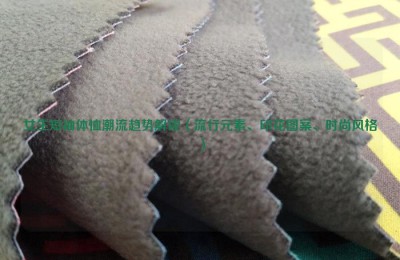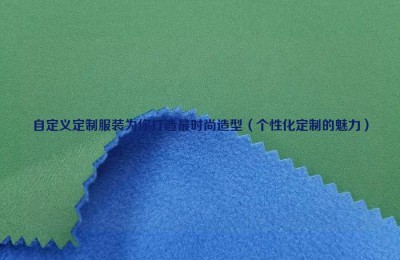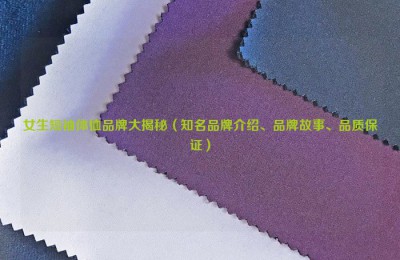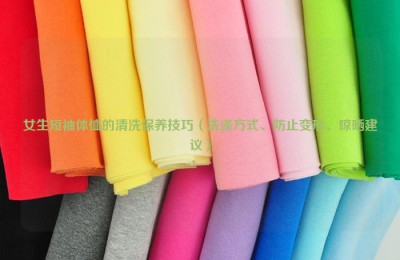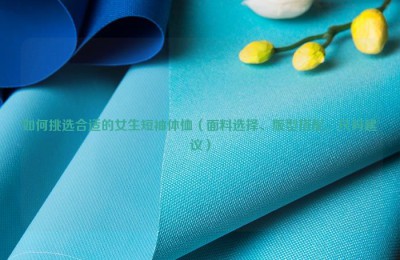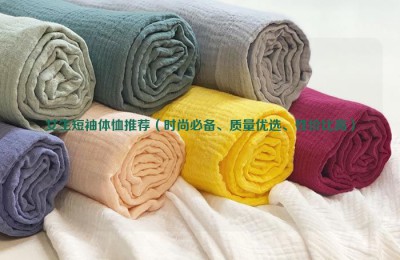The UK Government responded to the UK Environmental Audit Committee (EAC) to make a series of recommendations to address the growing environmental footprint of the fashion industry and outlined the steps it has taken to address the issue, including This includes launching a review of the Modern Slavery Act 2015 to measure its effectiveness and supporting the clothing industry through the Sustainable Clothing Action Plan (SCAP) to increase supply chain transparency.
The British government has responded to the recommendations made by the EAC on June 18, 2019. Its report outlines its solutions to the increasingly serious environmental problems caused by the fashion industry. Law.
In February 2019, the British EAC submitted recommendations to the British government, urging the government to formulate legislation that requires fashion brands and retailers to conduct due diligence on their supply chains, and target them. Taking more responsibility for the impact of business on the environment.
These recommendations follow an in-depth review of the current state of the UK fashion industry at the end of 2018. Concerned that the so-called “fast fashion” business model will encourage people to over-consumption and produce too much waste, British MPs consulted 16 fashion retailers (including M&S, NEXT, Debenhams, etc.) and online clothing retailers (including Missguided , Asos, Boohoo, etc.) to discuss what measures they need to take to reduce the environmental and social impact of the clothing they sell.
Each retailer was asked about a range of actions and initiatives, including the use of organic or sustainable cotton, limiting the release of hazardous chemicals, and future Reuse or recycling of sold inventory.
EAC’s final report pointed out that the British buy clothes much more frequently than other European countries, and about 300,000 tons of textile waste ends up in household trash cans every year. Sent to landfill or incinerator for disposal. At the end of a garment’s life cycle, less than 1% of the materials used to produce it are recycled into new clothing. The report also pointed out that retailers are burning unsold stocks of new clothes simply to protect their own brands.
EAC made several recommendations to the government, including formulating relevant laws to require brands and retailers to conduct due diligence (duediligence) in their supply chains to address labor abuse issues; charging brands and retailers a penny donation for every garment sold to raise £35m to fund clothing recycling schemes; and introducing tax reform to reward fashion companies that design environmentally friendly products and penalize those who Enterprises that do not take environmental impact into consideration in their design.
The British government’s response:
The British government responded to the recommendations made by the EAC and outlined solutions to the textile industry’s concerns about the Measures that impact the environment point to the 25-year Environment Plan and its Resources and Waste Strategy.
Specially referring to the global development nature of the fashion industry and its supply chain, the British government stated that the industry plays a “major role” in achieving change and helping to guide consumption behavior and, where appropriate, government support. The UK government said it will continue to provide support for the voluntary Sustainable Clothing Action Plan (SCAP), which is coordinated by the Waste and Resources Action Program (WRAP), an industry committed to carbon emissions. , water resources and waste reduction targets.
More work is needed to address supply chain waste, and SCAP committers are developing plans to address this issue, such as by standardizing procurement specifications and suppliers. Participate in the program.
The British government stated that more work is needed to solve the problem of supply chain waste, and SCAP commitment parties are developing plans to solve this problem, such as by standardizing procurement specifications and supply chain waste. Merchant participation program.
SCAP and other actions in the Resources and Waste Strategy (RWS) reflect the Government’s plans relevant to the industry. The RWS strategy also outlines our review and consultation planning for five new waste streams including textiles, such as Extended Producer Responsibility (EPR) and other measures. Producers must bear all the waste after the product’s use cycle. Recover processing costs and encourage more resource recycling and recycling.
About the EAC’s recommendations to improve supply chain transparency and provide stronger evidence for strengthening the Modern Slavery Act and mandating companies to report in annual reports In disclosing its human rights protection practices, the British government stated that the Transparency in Supply Chains provisions of the Modern Slavery Act 2015 had led to “thousands of companies issuing statements outlining their efforts to address global supply chains.” Measures taken to prevent slavery.” However, it acknowledged that greater transparency is vital to tackling modern slavery and said it would work to improve corporate compliance with the Act.
The UK government also said it has launched an independent review of the Modern Slavery Act 2015, aiming to determine where the legislation is working well and where…As a result of protective protests, television specials, and continued critical and laudable media coverage, shoppers began to prioritize durability over price.
But when it comes to the issue of underwear, many people believe that underwear cannot be recycled and cannot be donated. The move to gradually move away from fast fashion has not yet produced the expected results. Conversely, products designed to last no more than a few months enter the waste cycle at an alarming rate. The lingerie products that enter this cycle are not made from natural materials such as cotton or silk, but from petrochemical raw materials such as polyester and nylon. The demand for cheap underwear stems from the misconception that underwear is often consumed with the intention of being relatively used and then discarded. Before we can address any real environmental impact of the fast fashion industry, we need to overcome misconceptions about this consumer behavior.
Anna Bryher, campaign group director at LabourBehindtheLabel, added: A knee-jerk, short-sighted response to a series of incremental steps to tackle plastic waste and fashion sustainability is unwelcome.
The fashion industry plays a key role in the war on plastics and brands, and governments need to take action together to solve the waste problem. We urgently need legislation that sets out some minimum guidelines for businesses to follow. In fact, some companies have even called for legislation to create fair competition principles among brands and take measures that can improve sustainability. The government pointed out that the fallacy in this industry can only be reversed by insisting on voluntary measures, which is obviously inappropriate. But this is clearly not the case.
However, in a statement, a government spokesman denied accusations of “rejecting” the recommendations, adding that the government was committed to managing the impact of clothing on the environment. and the impact it has on society, especially in this age of fast fashion, and the response will develop a clear plan to address this important issue.
It would be incorrect to say that we do not accept the committee’s recommendations – we are addressing the environmental impact of “fast fashion”, much of what the committee wants to achieve Already covered by government policy.
In our landmark Resources and Waste Strategy (Resources and Waste Strategy), we will take relevant measures, including the development of Extended Producer Responsibility (Extended Producer Responsibility). extendedproducerresponsibility (EPR) and proposals and consultations to improve textile product standards. This will allow producers to responsibly manage and bear all recycling and disposal costs at the end of the product’s life cycle.
With the ground-breaking Modern Slavery Act, the UK is the first to require companies to report on how modern slavery is addressed within their own businesses and across their supply chains Step country. The Prime Minister has announced that the Government will create a centralized online reporting system for modern slavery claims to enable consumers to make more informed choices about where they shop.
The spokesperson also pointed out that by the end of 2025, the British government will review and consult on products such as Extended Producer Responsibility and five new waste streams. standards and other measures, two of which will be completed by 2022.
In mid-June, the British government injected 4.7 million pounds (approximately US$5.95 million) in funding to help promote the recycling of plastic packaging and textiles, and stated Looking for innovative ideas.
Kerry Gwyther, head of commercial regulation at TLT Law Firm, commented: Historically, most governments tend to see the effects of self-regulation before enacting legislation: The move around the use of single-use plastics in packaging is certainly on the right track and is now being rolled out in some supermarkets. The government has pointed to the voluntary Waste and Resources Action Program (WRAP) and the related voluntary Sustainable Clothing Action Plan (SCAP), coordinated by WRAP, which focuses on carbon emissions, water and waste Material reduction is the goal.
While legislation seems far off at the moment, the fashion and apparel industry should not breathe a sigh of relief. The fashion industry may be under the greatest pressure from consumers.
However, while legislation seems far off at the moment, the fashion and apparel industry should not breathe a sigh of relief. The fashion industry may be under the greatest pressure from consumers, known as the “Blue Planet effect” (Blue Planet effect), consumers are increasingly focused on the durability of products, production history and final disposal methods. We are already seeing the impact from our retail and consumer packaged goods customers, all the way from point of sale to manufacturing and procurement.
AAAFGHTYHCGER

